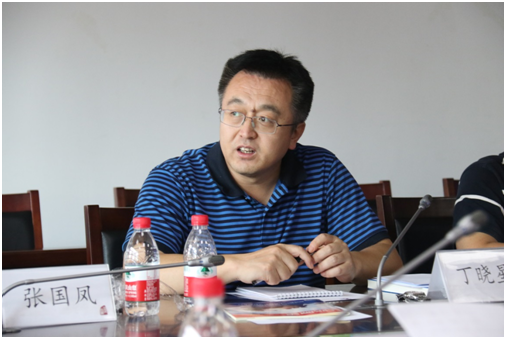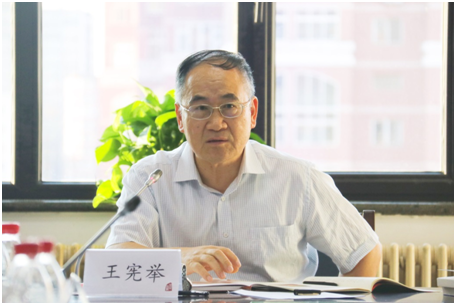 Research Update
Research Update
11
JulyOn the afternoon of June 28th, the Renmin University of China-St. Petersburg State University Russian Research Center (hereinafter referred to as "Russian Research Center"), the National Academy of Development and Strategy (NADS), and the School of Economics jointly organized the eighth Central Asian Salon. The theme of the event was “A New Situation in the Central Asian Region and a Symposium on the Development Trend of the SCO”. Ding Xiaoxing, Acting Director of the Institute of Russian-Central Asian Studies at the China Institute of Contemporary International Relations, and Xu Tao, Director of the SCO Research Office of the Europe-Asia Research Institute of Social Development of the State Council Development Research Center, made keynote speeches.

Researcher Ding Xiaoxing introduced the experience of visiting Uzbekistan and Kazakhstan, focusing on the impression of Uzbekistan and his views on reform and opening up. He said that Uzbekistan is currently fully implementing internal and external policy reforms: on the basis of maintaining national security and social stability, by improving the business environment, promoting judicial and administrative reforms, opening online channels of interviews, and responding to public concerns in a timely manner, clearing up the dysfunctions and improving people's livelihood; actively pursuing good neighborliness, deepening regional cooperation, extensively strengthening international exchanges, and achieving remarkable results. It can be said that under the leadership of President Milziyoev, the people of Uzbekistan have opened a new chapter in national development. In terms of China-Ukraine relations, the two countries have achieved important early gains in building a "One Belt One Road" pragmatic cooperation. Uzbekistan's fruitful "reform and opening" policy has brought new opportunities for the development of bilateral relations.

Researcher Xu Tao summarized the main achievements of the Shanghai Cooperation Organization Qingdao Summit in the fields of politics, economy and diplomacy, reviewed the development history of the SCO since its establishment, and looked forward to the new journey of SCO. He said that the SCO has transcended differences with common development needs. Since its inception, the SCO has brought together the most important political consensus of the member states. Last year, the participation of India and Pakistan marked the organization’s political mutual trust, which effectively promoted the security and economy of the region. The effective and pragmatic cooperation in the humanities field has achieved remarkable achievements. In addition, he said that with the rapid development of globalization and the unpredictable changes in the international social environment, the fields and methods of international security cooperation are also changing. In particular, the SCO member states are in a critical period of social transformation. What problems will arise between the new and old SCO members in the future, and what changes in attitudes will be unpredictable. This will require the SCO to upgrade to a deeper, more systematic and better level, from political mutual trust, organizational construction and security cooperation.

Wang Cong, assistant researcher of Institute of Russian-Central Asian Studies at the China Institute of Contemporary International Relations, shared the experience of attending an international conference in Kyrgyzstan. He mainly analyzed the latest situation in Kyrgyzstan and reviewed the cooperation between China and Kyrgyzstan in the political, economic and humanities fields, with looking forward to the future development trend of the two countries and pointing out the problems that need to be solved urgently.
Subsequently, after several speakers addressed the current situation of civil cooperation between China and Uzbekistan, whether the SCO and the G7 can cooperate in Eurasia, and whether India and Pakistan will join, will the consensus principle affect the decision-making efficiency of the SCO? The questions answered the questions from the participants.

The salon event was hosted by Wang Xianju, deputy director and researcher of the Russian Research Center. Li Yonghui, deputy director of the Russian Foreign Affairs Office of the Russia-Ease Europe-Central Asia Research Institute, Chinese Academy of Social Sciences, Liu Qian, assistant researcher of the China Energy Strategy Research Institute and the teacher at China University of Petroleum, Song Lifang, professor of the School of Economics of Renmin University of China, and associate professor Zhang Guofeng attended the event.